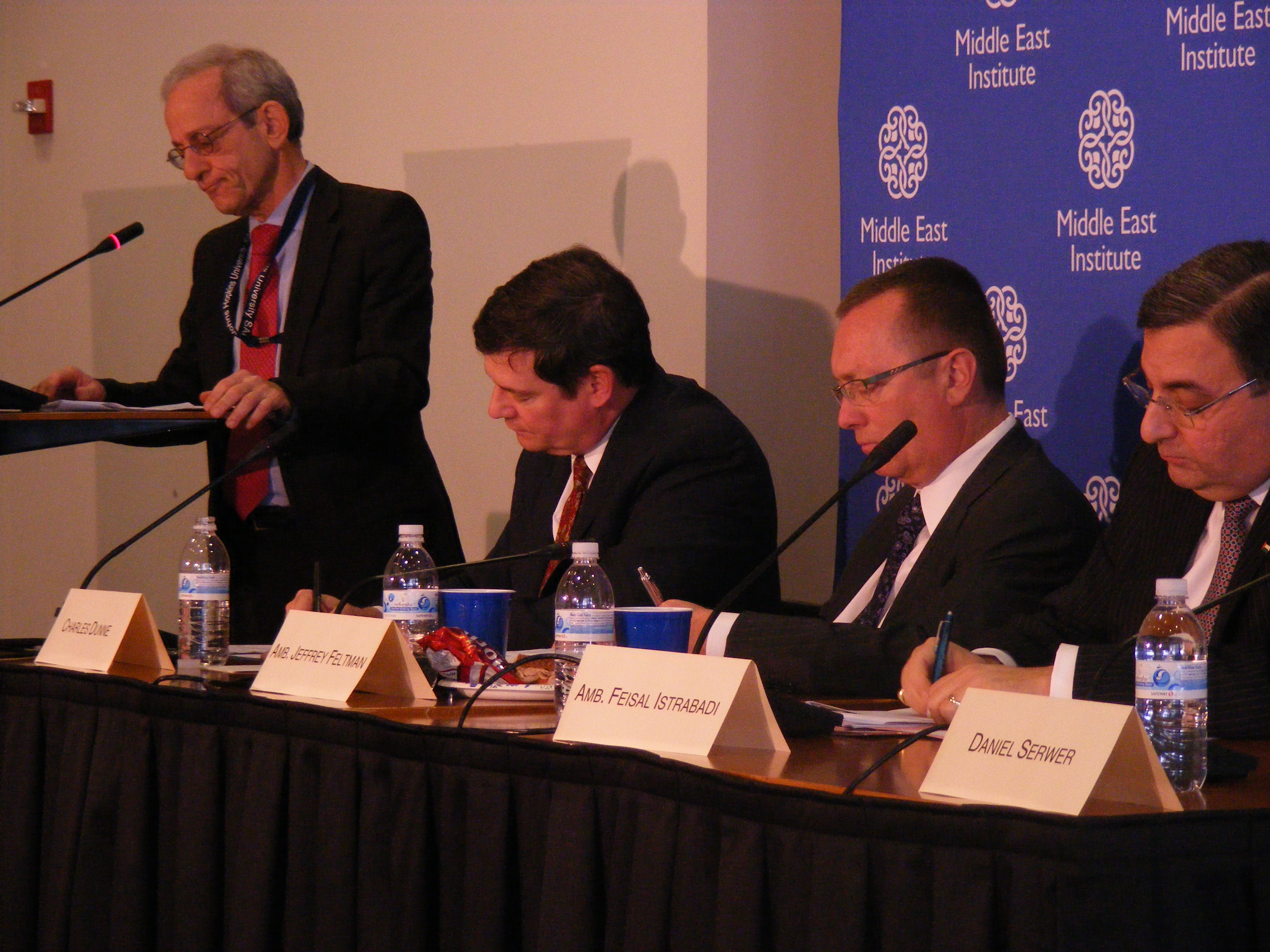The Middle East Institute is proud to host Amb. Jeffrey Feltman, Amb. Feisal Istrabadi, and Daniel Serwer for a discussion about the state of U.S.-Iraqi relations in the wake of the U.S. troop withdrawal from Iraq in December 2011. Panelists will explore both the challenges and opportunities presented by the transition of the U.S.-Iraqi partnership from a mainly military to a diplomatic one. What sort of working relationship is emerging between the U.S. and Iraqi governments? What kind of cooperation is taking place in the areas of domestic and regional security, diplomacy, trade, energy, and reform? How has the troop drawdown affected U.S. influence in Iraq and the region in general? Feltman, Istrabadi and Serwer will explore strategies and policies resulting from the new bilateral dynamics.
Bios: Ambassador Jeffrey Feltman has served as assistant secretary of state for Near Eastern Affairs since 2009. A career member of the Foreign Service since 1986, Ambassador Feltman served as principal deputy assistant secretary in the Bureau of Near Eastern Affairs from February 2008 to his present assignment, serving concurrently as acting assistant secretary of state for the Bureau since December 18, 2008. From July 2004 to January 2008, Ambassador Feltman served as the U.S. ambassador to the Republic of Lebanon. Prior to his assignment in Lebanon he headed the Coalition Provisional Authority's office in the Irbil province of Iraq, serving simultaneously as deputy regional coordinator for the CPA's northern area. From 2001 until 2003, Ambassador Feltman served at the U.S. consulate-general in Jerusalem, first as deputy principal officer and then as acting principal officer. Other postings include Tunisia and Israel.
Ambassador Feisal Istrabadi served as deputy permanent representative for Iraq at the United Nations from 2004 to 2007. He is currently the founding director of the Center for the Study of the Middle East at Indiana University-Bloomington where he is also University Scholar in International Law and Diplomacy. Prior to his diplomatic appointment, Ambassador Istrabadi served as a legal adviser to the Iraqi Minister for Foreign Affairs during the negotiations for United Nations Security Council resolution 1546 of June 8, 2004, which recognized Iraq's reassertion of its sovereignty. He was also principal legal drafter of Iraq's interim constitution, the Law of Administration of the State of Iraq for the Transitional Period, and principal author of its Bill of Fundamental Rights. Before contributing to the reconstruction of Iraq, Amb. Istrabadi was a practicing trial lawyer in the United States for 15 years.
Daniel Serwer is a scholar at the Middle East Institute as well as a senior research professor of conflict management and a senior fellow at the Center for Transatlantic Relations at the Johns Hopkins School of Advanced International Studies. Formerly vice president for Centers of Peacebuilding Innovation at the United States Institute of Peace (2009-10), he led teams there working on rule of law, religion, economics, media, technology, security sector governance, and gender. He was also vice president for peace and stability operations at USIP (1998-2009), where he led its peacebuilding work in Iraq, Afghanistan, Sudan and the Balkans. Serwer has worked on preventing inter-ethnic and sectarian conflict in Iraq and has facilitated dialogue between Serbs and Albanians in the Balkans. In 2006, he served as executive director of the Hamilton/Baker Iraq Study Group.
Moderator: Charles Dunne is the director for Middle East and North Africa Programs at Freedom House and a scholar at the Middle East Institute. He spent 24 years as a diplomat in the U.S. Foreign Service, serving overseas in Cairo, Jerusalem, and Madras, India. In addition, he was director for Iraq at the National Security Council from 2005-2007 and a foreign policy adviser to the director for Strategic Plans and Policy at the Joint Staff in the Pentagon (2007-2008).












